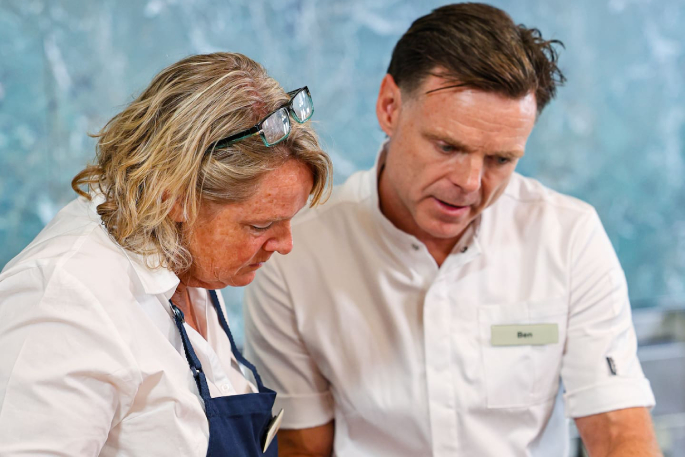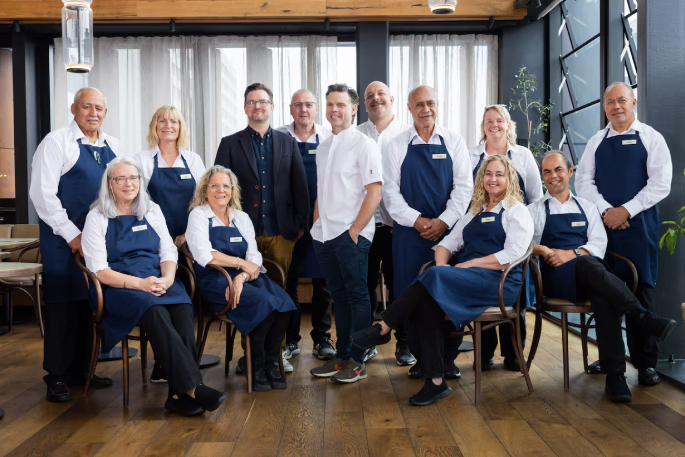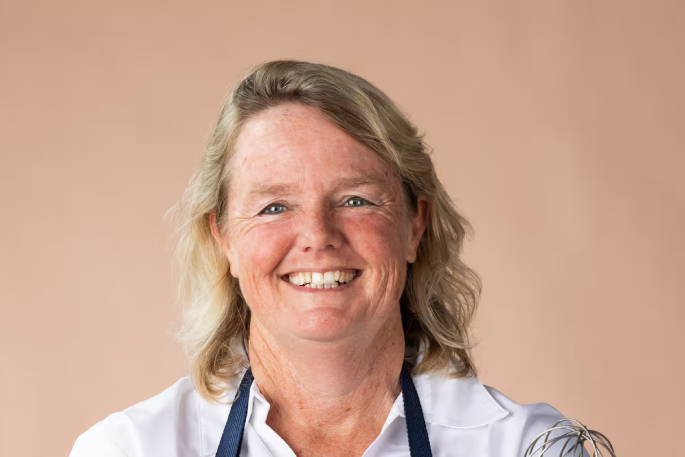When Lois Wolkers, 52, was diagnosed with young onset dementia last year, her world —and that of her family — was turned upside down.
Wolkers and her family endured a lengthy and difficult journey to get the right answers.
Now, 18 months later, Wolkers reflects on her journey with an attitude that embodies resilience, family love and the power of community.
Speaking from her home in Ngatea, Wolkers talks openly about her diagnosis and the support systems she’s found along the way.
The symptoms were initially thought to be related to perimenopause.
“But nothing seemed to help, and my memory just kept getting worse. I knew something else was wrong.”
Her sister-in-law, Carmen Stadler-Hanekom, was by her side through it all.
With experience working in aged care, Stadler-Hanekom pushed for further testing when initial treatments proved ineffective.
“It was a hard-won diagnosis,” Stadler-Hanekom says.
“Lois needed to know what was going on. Once we had the dementia diagnosis, it was shocking, but at least we knew what we were dealing with.”

Lois Wolkers with celebrity chef Ben Bayly in the kitchen at Origine. Photo / TVNZ
For Wolkers, getting a diagnosis was a turning point.
“It helps people understand,” she says.
Ngatea has become a sanctuary for her, husband Frank and son Ethan. Living in the small rural town, she has found her community to be understanding and kind.
“People here are lovely, I’ve told a few shopkeepers about my dementia, and they’re always so patient if I forget something.”
Despite the challenges, Wolkers says she continues to embrace life with a positive outlook.
“I’ve always been a bit crazy, this hasn’t changed that. I just take life moment by moment, and I’m thankful for the good days.”
Her positive spirit is on display for a national audience.
She is one of the 10 volunteers appearing in the second season of The Restaurant That Makes Mistakes, airing on TVNZ.
The show gives participants the chance to run a high-end restaurant, challenging public perceptions of dementia and the abilities of those living with it.

The cast of The Restaurant That Makes Mistakes take over Ben Bayly's Origine. Photo / TVNZ
The first season of the show, based on the original British format, followed a group of volunteers as celebrity chef Ben Bayly mentored them at his West Auckland restaurant The Grounds.
One key difference this season is that most of the cast are younger, having been diagnosed with dementia under the age of 65. And while some are still able to work, others have had to give up their careers.
“I’m excited for people to see that we can still contribute to society,” Wolkers says.
As The Restaurant That Makes Mistakes brings her journey to a wider audience, her message to the community remains simple.
“Be kind, you never know what someone is going through.”
With the support of her family, friends and the Ngatea community, Wolker says she continues to face dementia with grace, determination and a whole lot of heart.
Stadler-Hanekom says while Dementia New Zealand and its affiliates, such as Dementia Waikato, offer support, more needs to be done to ensure the availability of local services.
“We need more dementia-friendly activities and groups, especially for younger people; Lois is still independent, but services like cognitive therapy are difficult to access in our area due to funding limits.”
She also points to the importance of community awareness.
“Dementia isn’t just an old person’s disease,” she says.
“It can affect people in their 30s or 40s; like Lois; we need to build communities that understand that and make them safer and more inclusive for people with dementia.”
Dementia Waikato senior dementia adviser Janine Appleby, who has worked closely with Wolkers, agrees there is a need for greater public understanding of dementia, particularly when it affects younger people.
“It can take an average of four years for people with young onset dementia to get diagnosed.
“This is because many health professionals don’t initially consider dementia when symptoms appear in younger people. Lois’s story is unfortunately common, and it highlights the importance of seeking second opinions and pushing for answers.
“Lois is an example of how, with the right backing from family, community and professionals, people with young onset dementia can live fulfilling lives. But it’s also a reminder that we need more resources to support those living with dementia, especially in rural areas.”
What is early-onset or younger-onset dementia?
It’s estimated that more than 5000 New Zealanders have early-onset or younger-onset dementia, according to the Younger Onset Dementia Aotearoa Trust.
It’s defined as dementia diagnosed in a person younger than 65, though they can start experiencing changes and symptoms associated with dementia from their 50s or even their 40s. Those symptoms include changes in personality, mood, memory, problem-solving, or organisational and planning skills.
For more information, resources and support, visit Dementia New Zealand’s website here.



0 comments
Leave a Comment
You must be logged in to make a comment.